Across the globe we all need access to great healthcare. The need is especially urgent in the midst of poverty-stricken communities.
But how does a social entrepreneur help solve this? Where does one start?
These are the questions that Dr. Stephen Letchford and Wesley Brown grappled with over the past few decades. And these are the issues that inspired them to create their social for-impact venture, Banda Health, and release an online health information technology system, BandaGo, that transforms frontline health clinics, providing cloud-based digital solutions to get the most out of available resources.
Josh Barker, CEO of City Innovations, sat down with Stephen and Wesley to chat about how Banda Health and BandaGo started, pivotal points in their inceptions, what’s next, and some words of wisdom for other intra- and entrepreneurs.
Dive in by listening to the podcast video below or keep scrolling to read the podcast recap.
From Private Practice to Social Entrepreneurship: How this Healthcare Venture Happened
After seven years with a private practice, Stephen and his wife moved their family to Africa in 1998. While there, Stephen worked in two different mission hospitals over several years. For those who don’t know, mission hospitals are prominent among faith-based institutions that provide healthcare in sub-Saharan Africa.
“[Mission hospitals are] kind of the last place that someone who’s really at a vulnerable point goes to,” Stephen explained. But many of the facilities, and their lower-level health facilities in more rural areas in sub-Saharan Africa, are in crisis.”
After seeing this, Stephen wanted to figure out a way to use emerging technology to bring it to a grassroots level and help the people who need it most.
Wesley’s background is in software development and he has worked in a variety of industries. In 2012, Stephen enlisted Wesley’s help in creating a software venture that would connect and empower frontline providers working in remote, rural villages. Eventually, Wesley moved to Kenya and the two got to work.
“[We] just wanted to help them do what they do, and do it better,” Stephen explained.
Lean Startup Methodology Helped Identify the Needs in Poverty-Stricken Communities
Before Stephen and Wesley could get BandaGo off the ground, they needed to examine the issues that most clinics faced when it came to providing healthcare in poverty-stricken communities.
“Lean startup emphasizes customer feedback over intuition and flexibility over planning.”
Eric Ries
Several of the frontline healthcare providers in sub-Saharan Africa, especially those that serve remote and/or rural populations, are small clinics without medically licensed doctors. Occasionally they are staffed by nurses or medics, but most often, these clinics are run by individuals with basic medical and pharmacy training.
Unfortunately, for many families struggling with extreme poverty, when someone is ill there are hard decisions to be made. Stephen found it difficult to watch as parents would need to decide between caring for a sick child or buying food. Stephen and Wesley knew that ultimately, their mission was to help the clinics and the patients, and now it was time to figure out exactly how.
“Anything that we can do to help [healthcare providers] be able to spend more time with patients, be able to make better decisions when they’re with their patients, and make sure they get the right medications when they need those medications — that has a huge impact for a relatively small amount of effort,” Wesley explained.
When BandaGo was first developed, Stephen and Wesley worked with medium-sized hospital-connected clinics.
“I remember thinking that this technology that we’re bringing was a big advantage,” Wesley said. But then he realized over the first two years that that was not the case at all. “It became very apparent that technology can enable a good organization or a good person in a role to do what they’re doing better. [But it] can also enable somebody with bad habits to do a worse job.”
“Technology is not the important piece — it’s empowering and enabling people and the processes that they’re using to do what they’re doing and do it better. That’s what we’re trying to do now with the small clinics we’re working with,” Wesley continued.
The main goal of BandaGo was to develop and implement a comprehensive information technology system that combined the clinical aspects of running a hospital or clinic, as well as the financial side of things, catering to highly affordable and extremely robust solutions. Stephen and Wesley said their “big picture” dream was to ensure that small clinics on the frontlines of healthcare could confidently provide better care, despite scarce resources. The ability to keep track of medicines and supply stocks ensures patients receive the right treatment at the right time. Additionally, waste and theft are dramatically reduced so patient costs can stay low, and potentially life-saving medications are in stock when needed most.
“We knew that one of the critical pieces was somehow combining both the administrative aspects of running a hospital or clinic — the medical side of things as well as the financial side of things,” Wesley explained. “So in general, you tend to get systems that are either medical-based, gathering a lot of patient-related information, and then somebody tacks on the financial piece.”
Wesley and Stephen found with this model, the financial piece wasn’t a good fit. Or the converse of that model, a good financial system with a subpar medical system tacked on just didn’t work.
“Working originally in the hospital setting, we were working with open source platforms to be able to leverage both excellent medical software and then tie in the really important pieces of the financials, like point of sale inventory operations, those kinds of things,” Wesley continued.
Using Stephen’s experience and the struggles he’d seen from a doctor’s perspective, working in an institution, and working as a hospital administrator — being able to see the issues from all sides is where Stephen and Wesley started. They worked to learn more, gained even more experience, and did some customer and patient discovery that would continue to guide their work.
Pivot Points: Scaling the Software Venture
As Stephen and Wesley continued to build up BandaGo, they faced some issues that eventually led them to pivot. Working in a developing area, they found that teams couldn’t rely on having local access to servers, reliable power, or even reliable internet to a certain extent. Any solutions that required a server running in a clinic put BandaGo at an immediate disadvantage.
A lot of the hospital management style platforms at that point in time assumed server availability, there weren’t many SaaS options. Cloud-based solutions weren’t as prevalent at that time either, and especially not in the developing world, Wesley explained. BandaGo started using OpenMRS, which is a very popular open-source platform for gathering medical data. The team started hosting BandaGo locally by setting up physical servers in clinics. While the cost of the server set-up was insignificant, the follow-up costs including setting up a secured network on unstable power access did not scale successfully.
“You can help one, two, maybe 10 places do that,” Wesley said. “But if you want to get to a thousand places, there’s no way in the world you’re going to be able to effectively roll out that many servers when you’re a small start-up.”
Stephen and Wesley needed to pivot.
They needed to figure out how to simplify implementation because it was a big barrier to clinics. It was time to reevaluate and expand the backend software to dramatically lower the barrier to entry and ensure that multiple clinics could run off the same database. Now, BandaGo has everything running in one easily accessible place. They can even tailor their software to run on lower-resource computers and/or relatively low bandwidth connections, as well as some offline capabilities.
When it comes to the success of BandaGo, there were ups and downs and plenty of lessons learned, but at the end of the day, it has helped improve the healthcare provided to poverty-stricken communities day by day. It’s a simple construct: good healthcare equals the right diagnosis, right treatment, and right time. And that’s exactly what Stephen and Wesley are determined to do.
Words of Wisdom; Don’t Wait Until it’s Perfect to Get it into the Market
When it comes to ventures, it’s hard to know where to start and when. Stephen’s advice: Don’t wait to get something perfect before getting it out to the market. Wesley shared similar advice and said to be ready to make changes to avoid getting stuck. In the lifetime of a project, you get a few opportunities to start fresh, so pick your moments carefully and take advantage of it when you can.
As a social innovator, Stephen references Ann Mei Chang, author of Lean Impact, that there are three things you have to do in order to be successful.
“You have to focus on impact. So, what is it you want to transform?” Stephen explained. “And you have to tick, not just the impact box but you’ve got to tick the value box. And that is of value to the user.” If your end-user doesn’t understand the value that you deliver, there will be no social impact. The last box? “You gotta tick resources.”
BandaGo is 10 years in the making, and Stephen said it best: “We are the one-mile marker of a thousand-mile journey right now.” There is a lot more they still need to do to become the company they wish to be. The plan is to get their software into 150 clinics by the end of 2022. That means BandaGo will need to continue scaling up and deliver a product that continues to better fit the needs of their clients.
Get Connected
Want to learn more about Banda Health and their BandaGo software? Check out their website or listen to the full podcast below.
For more great venture stories, advice, and news, click here to subscribe to our email communications!




